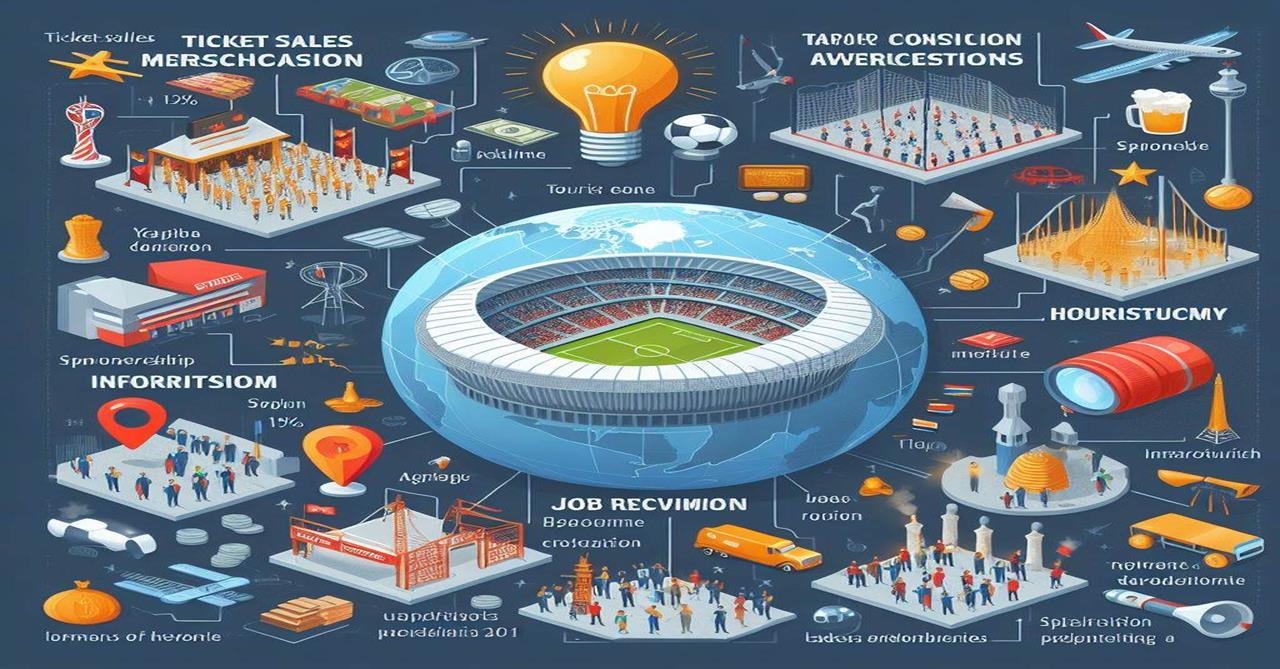
Introduction: The Power of Sports Beyond the Field
Sports are more than competition — they’re economic engines. From local stadium matches to international mega-events, sports tourism is one of the fastest-growing sectors in travel. Millions of fans travel each year to support their teams, boosting hospitality, transport, and retail industries along the way. For many cities, hosting a sporting event isn’t just about trophies — it’s about transformation.
What Is Sports Tourism?
Sports tourism refers to travel specifically for watching or participating in sporting events. It can be:
- Event-based: Fans travelling to the Olympics, FIFA World Cup, or Formula 1 races.
- Active participation: Athletes joining marathons, golf tournaments, or triathlons abroad.
- Heritage travel: Visiting iconic stadiums like Camp Nou in Barcelona or Wimbledon in London.
The Economic Ripple Effect
Hosting sports events sparks a chain reaction across industries:
- Hospitality: Hotels, hostels, and Airbnb see huge surges in bookings.
- Transport: Airlines, trains, and ride-hailing apps benefit from increased demand.
- Local Businesses: Restaurants, shops, and tour companies thrive from visiting fans.
- Employment: Temporary jobs are created for event organisation, security, and media.
For example, the 2018 FIFA World Cup in Russia generated an estimated $14 billion for the economy, while the Tokyo 2020 Olympics (despite pandemic limits) still injected billions into infrastructure and services.
Infrastructure That Lasts Beyond the Event
Sporting events often justify large-scale investments in infrastructure:
- Stadiums: Iconic landmarks that attract visitors long after the games.
- Transport: Improved metro lines, airports, and roads serve locals for decades.
- Technology: Smart city upgrades like cashless systems and 5G networks.
Barcelona’s transformation after the 1992 Olympics is a prime example, turning it into a global tourism hub.
The Challenges of Hosting Sports Tourism
While the economic potential is clear, not all events deliver lasting benefits. Critics highlight risks such as:
- White-elephant stadiums left unused after the event.
- Overcrowding and strain on local resources.
- Rising costs of living during and after mega-events.
Balancing investment with sustainability is key for host cities.
Why Sports Tourism Will Keep Growing
Globalisation and digital media fuel fans’ desire to be part of sporting history. With more countries bidding to host mega-events and a rising middle class eager to travel, sports tourism is expected to expand further. Even niche events like eSports tournaments are drawing global crowds.
Final Thoughts: A Winning Strategy for Cities
Sports tourism is more than cheering in the stands — it’s a catalyst for economic growth, cultural exchange, and international recognition. When managed wisely, hosting sporting events can leave a legacy that benefits local communities long after the final whistle.